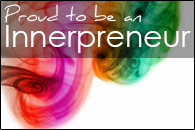It's difficult to thrive when the economic world around you is falling apart.
I hate to say it, but I know. I KNOW. I grew up in Buffalo during the 1970s. One of my fondest memories of my father was our discussions of the decline of the oil industry, his employer (remember Texaco?). He was an award winning salesperson in the early 1960s (I still remember the slogans: Under the Gun in 61, Out in the Blue in 62) and our home collected his trophies. He was a success.
But that was not to last. Texaco closed the Buffalo regional office where he was based, selling petroleum products to a shrinking local industrial base. His territory kept getting bigger, sometimes taking him to not-nearby Pennsylvania.
Dad was laid off in the early 1970s. I was in college at the time. I had a full scholarship, for the debate team. I worked every summer to pay my dining expenses, so all he had to pay for was my dorm and incidentals. So I was spared my life falling apart when his did.
Fortunately, he was quickly hired by a local speciality grease manufacturer, where he worked until his death. But he never really got over the demise of Texaco. He always had liked working at a big corporation; his dad drove a bread truck, so he had advanced himself to the next rung on the ladder. His death came from a heart attack; by the time I got the call and came home from 500 miles away, on Halloween night in 1981, he was already dead.
I think of my dad now, because what he went through is a lot of what many of us will be going through...not just the big losses of houses and savings, but the more subtle losses, the losses of a sense of your place in life. A whole generation is losing the American story of upward mobility.
I see that loss echoed it in the calls for a bailout, the emotion that government needs to "do something" to save these jobs. The emotion as again, a way of life is torn up by forces way out of the average person's control, even out of Wall Street's control.
One of the hardest things for my dad was to see what was going on around him and feel the victim of it. He felt that nothing could be done to restart Buffalo's economy. He was an ambitious homebody, a family man and loyal corporate soldier.
I am writing my book for my dad, in gratitude, and for the dads and moms who will be facing some of the difficulties that we had growing up.
Sadly, my dad really never survived the loss of that job. But in truth, it wasn't the job that killed him, it was something more insidious.
A few months before he died, he told my mother, "I've been fooling people my whole life." For my dad, succeeding in business, even in the limited way he did, propped up his deep sense that he didn't belong. Tell me you don't know people like that, who have gifts and just don't feel they deserve to live into who they really are. Tell me you aren't one.
In my view, my dad deserved to be at the table of plenty. He had the skills and work ethic, but he never had faith in himself. Like many men, he drank, not problematically, but enough to ease himself into home after a day at work.
Dad never survived his personal recession.
My dad never trusted in his bones that he could "Bring forth that which is within him." He never knew that "what is within him would save him." He measured himself by some standard that I never fully understood, and he always came up short in his own eyes. I don't know this for a fact, but I believe he died feeling like a failure.
Throughout my life, I have been trying to figure out a different calculus for my life. I'm writing a book out of these blog posts, about how to bring forth what is within you and be at peace with the demands of an unstable economy. What was a personal project has now become a deeply felt mission. There is a lot of pain coming -- pain that I am very familiar with, and in fact feeling now -- and I want to help Americans to redefine their lives in such a way that they are not victims, like my dad was, when the economy turns against you.
The last time I saw my dad was in Florida, where he and my mom spent every winter. They rented a small house near Orlando, which was where autoworkers and others from the Rust Belt clustered. He was an old man at 71. We talked, as we always had, about politics in Buffalo, cars, and other things. We spent time with their friends from Buffalo. I remember thinking that this man I had so many complex feelings had become "harmless." I think he had found some peace from his demons at long last, and had learned to relax and enjoy his family and friends. He had been retired for six months. Six months later, he was dead.
If my book can help one person to see him or herself more deeply, to tap into his or her own being for answers, rather than crash and burn at the loss of a 401(k), or a job, or a house, then you can be sure that I didn't do it alone. I don;t mean this in any superficial, feminine, new age way. I mean it in the most hard-hitting, war-like, practical, life-saving way.
After all these years, maybe I've found a way to pay my dad back for his sacrifices. He is in every word I write.
Schedule for Week of December 21, 2025
3 hours ago









4 comments:
I know so many people who were impacted by previous downturns in our economy. It is such as shame that many (if not most, even) people never fully recover.
What a wonderful tribute your book will be to your dad and all his hard work.
Susan, I am deeply moved by what you have written. Your dad comes alive in your writing. It seems to me that one of the key things that you are getting at is our ability to find our identity in something deeper than the external circumstances we find ourselves in. I was thinking about this a fwe weeks ago, as I was struggling with the impact of the plunging stock market. There is a trap that we can get caught in that links our identity and self worth to image, whether it is our appearance, our job, our house. If we lose some or all of these and we think that is who we are, we are devistated. If we remember that who we are is bigger or deeper than those things, we can find new meaning in our lives even after their loss. I think that must be part of the meaning of the phoenix rising.
Thank you for sharing your story.
Patricia Moore
Susan, I happened upon your name and so glad I clicked to see your site. I look forward to following you on Twitter.
Robin
Hi Susan--
A very moving story. Sounds like you and I are on similar life paths. You should meet my parents-- particularly my mother, who's an economist. I'm in the area for another month or so before going back to Prague-- Let's get together!
-- Sarah
@eclectopedic
Post a Comment